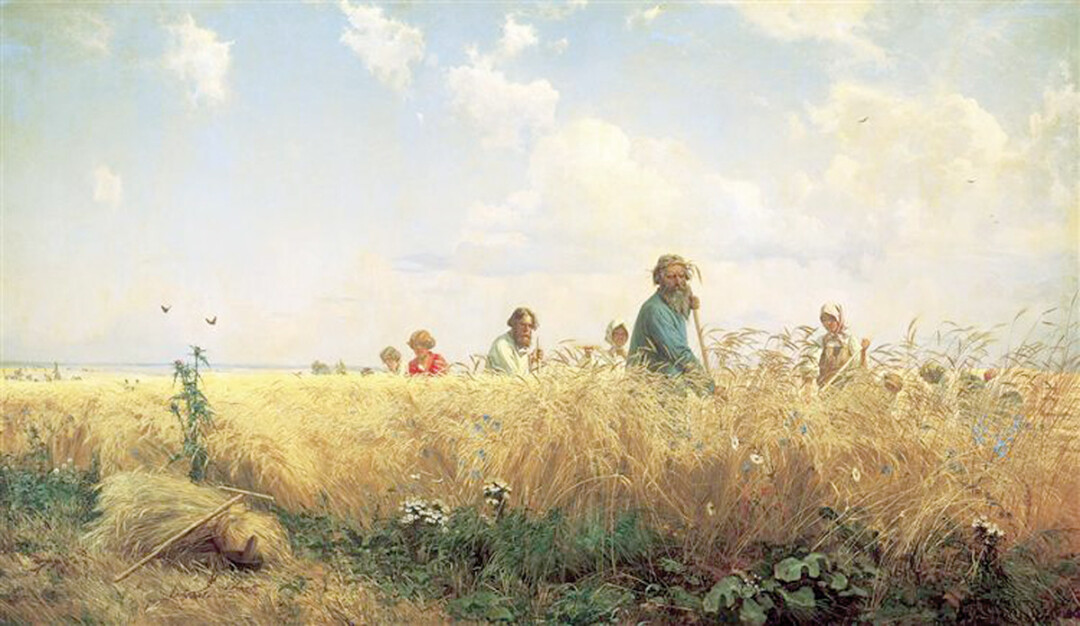Eugene Onegin: An Ode to Love and Grandeur in Imperial Russia
Else Trygstad-Burke | Monday Apr. 1st, 2019
This April, Intermountain Opera Bozeman will bring to the stage an epic story of romance, jealousy, and aristocratic life set to one of the most beautiful musical scores ever written. Eugene Onegin is an opera with something for everyone: stunning sets and costumes, beautiful music, themes of love and nostalgia, and a plot that captivates audiences until the curtain falls at the end.
Inspired by a lengthy “verse novel” written by 19th-century Russian poet Alexander Pushkin, Eugene Onegin illustrates the emotional drama and royal splendor experienced by its characters. This production is a perfect example of “the opera being better than the book.” Pushkin’s passionate characters and their luscious surroundings come to life in this visually spectacular opera, written by one of history’s most luxurious composers, Pyotr Tchaikovsky (composer of The Nutcracker and Swan Lake). 
The opera delivers an immediate emotional impact on the viewer. The orchestra’s opening lines, a series of sighing notes in the strings, foreshadow the pangs of love and loss that torment the characters throughout the story. Tchaikovsky’s music maintains an elegant and aristocratic quality for the entire opera, while including all of the intensity and romance of his ballet music. This is music that appeals to all who hear it; the abundance of melodies and thick orchestral textures are reminiscent of Puccini’s operas, but without the sharp divides between famous arias and “transition” music. Every minute of the music in Eugene Onegin transports the audience to a world of lavish palaces and pastoral landscapes.
Most 19th-century operas contain large amounts of social drama. Eugene Onegin is unique in that it explores its characters’ emotions and conflicts in a much more intimate way. Much of the libretto (an opera’s “script”) has a poetic quality, due to Tchaikovsky’s commitment to using so much of Pushkin’s original poetry. For an opera composer to develop their own libretto was rare for the period. The fact that Tchaikovsky did construct the majority of the libretto for Eugene Onegin certainly contributes to the poignant and moving quality of the music. The story is easier to follow than in many operas, as many of the character’s arias (long solo songs) contain narration about their past or present experiences. The full impact of the libretto’s poetry can be enjoyed by audiences in Intermountain Opera’s production, since English supertitles will be projected above the stage throughout the entire performance.
Eugene Onegin connects very closely with modern audiences, due to the timelessness of its plot. The protagonist, Eugene Onegin himself, is a character who is perhaps familiar to many audience members: an arrogant and bored individual to whom love and relationships are a game. One of Eugene’s first lines in the opera is a complaint about how dull it was to sit by the bedside of a dying relative. His ability to seduce young and naive women through manipulation becomes the centerpiece of the plot, making him into a character that audiences “love to hate.” This establishes him as the direct opposite of Tatyana, the heroine, whose earnestness and innocence establish her as an audience favorite.
Many different interpretations of the opera exist. Some productions take a more empathetic approach to Eugene’s character, implying that he matures over time and is genuinely remorseful about his behavior throughout the story. Others focus more on Tatyana’s growth as a woman and imply that Eugene’s eventual interest in her results from a change in her social status. No matter what the interpretation is, this story is all the more interesting when viewed by modern audiences. If the opera were a contemporary movie, it would be the ultimate “makeover” story, in which the arrogant antihero regrets rejecting someone once they become stylish and popular. The movie Grease comes to mind at once - John Travolta’s character could easily be a more likeable version of Eugene. Audiences are often conflicted as to whether they should feel any sympathy for Eugene (this author firmly does not). A viewing of Eugene Onegin is guaranteed to produce great post-show conversation and debate!
Eugene Onegin is immensely difficult to produce for many reasons, not the least of which is the requirement for the lead singers and chorus to sing in Russian. The opportunity to see this opera is rare, and it has never before been performed in Montana. Intermountain Opera Bozeman hires renowned guest artists from the best opera companies in the United States. These artists will perform alongside a live orchestra composed of the region’s top musicians, conducted by Adam Turner of Virginia Opera, and a chorus of outstanding local singers. Pyotr Tchaikovsky, as should be expected, manages to slip some ballet music into the opera. The famous “Polonaise” music at the beginning of Act III is a passionate and energetic example of dance music played in the grand ballrooms of 19th-century palaces and estates. Intermountain Opera is collaborating with Bozeman’s new contemporary dance company, Raison D’être Dance Project, for the opera’s ballet scenes.
Opera is one of the most effective art forms for conveying the complexity of love, relationships, and society. Eugene Onegin takes this a step further by making the settings a central part of the story. Art and music from the 19th century often drew inspiration from the sweeping landscapes that surrounded the artists, and this was very much the case in Russia. Perhaps the most moving part of the opera is the Peasants’ Chorus, which begins with the solemnity of a religious Mass and expresses the weariness of the workers on the estate:
“My swift little feet ache from walking.
My ardent heart aches from caring.
I don’t know what to do,
how to forget my sweetheart.”
These poignant words and beautiful harmonies, sung by the full chorus, are Tchaikovsky’s tribute to his homeland and its people. As the story navigates the loves and losses of its characters, this remains at its core.
Intermountain Opera’s productions will take place on Friday, April 26th at 7:00 pm and Sunday, April 28th at 3:00 pm at the Willson Auditorium. Tickets are available at intermountainopera.org or 406-587-2889. Students receive 50% off tickets, and first-time attendees receive 25% off. Patrons must call the IOB office for these discounts.
Pre-show lectures take place an hour before each performance begins, in the library upstairs from the lobby at the Willson Auditorium. On April 21st at 2:00 pm, a free behind-the-scenes event will take place at the Unitarian Universalist Fellowship as part of MSU’s Wonderlust series.
Else Trygstad-Burke has played in opera orchestras for many years, and is passionate about bringing history to life through the arts.
| Tweet |
